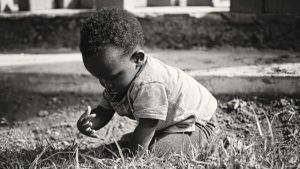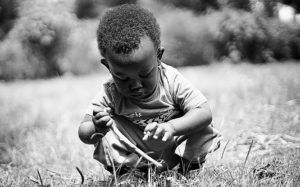The Facebook announcement was 3 likes and 1 share in when it appeared on my Home page. I followed the link to the Kwani webpage: Nuruddin Farah in conversation with Binyavanga Wainana. Binyavanga is the founder and editor of the Kwani? Trust. Nuruddin, mh? I had never heard of him before.
I Googled his name up.
Wikipedia said that Nuruddin was the author of several books. His first novel – From a Crooked Rib (1970) – tells the story of a nomad girl who flees from an arranged marriage to a much older man.
His trilogies of novels – Variations on the Theme of an African Dictatorship (1980–1983) and Blood in the Sun (1986–1999) – form the core of his work. Though Variations was well received in a number of countries, Farah’s reputation was cemented by his most famous novel, Maps (1986), the first part of his Blood in the Sun trilogy. Maps, which is set during the Ogaden conflict of 1977, explores the questions of cultural identity in a post-independence world.
He followed the novel with Gifts (1993) and Secrets (1998), both of which earned awards. His most recent trilogy Past Imperfect comprises Links (2004), Knots (2007) and Crossbones (2011).
He holds several international awards for his work. He lives in Cape Town.
(Source: Wikipedia)
Nuruddin’s novel Crossbones was released in the UK in April 2013. Locally, Kwani? will publish the book. It will be available for distribution in August 2013. Crossbones is the final volume in the trilogy, Past Imperfect.
*
Mid-April 2013, three weeks after Easter Thursday, I find my way to the Louis Leaky Hall at the National Museum amidst the rain and Nairobi traffic; si you know how that rain-traffic equation balances, eh? Expectedly, a bookstand had been set up at the entrance show-casing several of Kwani’s publications and Nuruddin’s previous work. Who never milks at these literary gigs?
I got a middle seat in the middle aisle and settled in to observe the crowd. I was one of the handfuls of Kenyans in the auditorium: fans of Binyavanga, followers of Kwani, age-mates of Nuruddin. Journalists. No idlers. Somali’s were mushroomed in groups of threes and fours. One of their own was the reason we were here, their excitement was palpable. Jungus were the majority; the young hippies in their odd fashion and the cultured mature ones with notepads open in their laps. Then there were photographers; photographers who appeared to be in town only for this event. Apart from their equipment and equipment bag, the only other thing in hand was a cell phone, I suppose. A phone with the last dialed number that of a cab driver whose name they didn’t bother to save.
It was a full house. Nairobi’s literary community huddled together to eavesdrop on conversation between two of Africa’s influential writers.
Nuruddin slipped through the crowed unnoticed and sauntered on stage. A lean and aged man, older than his photographs had suggested. He had slight limp in his right leg. His minimalist dressing reminded me of Steve Jobs – Nikes and stone-wash Levi jeans. He took the seat closest to him and settled back, I swear I heard him sigh. His demeanor was like that of a favorite Grandfather sitting in front of a fire waiting to tell stories to the children circled at his feet. We waited in eagerness; I can imagine the earnest Nuruddin registered when he looked up at the dimly lit crowd from the stage.
Binyavanga took the seat across from him. He crossed his legs at the ankles, folded his hands over his laps and leaned in forward. He maintained this closed posture throughout the conversation. His sporadic and unnecessarily loud laughter, however, contradicted this posture. Nuruddin’s responses to the questions were unhurried and well-thought; he gave himself a few moments to order his words before he spoke. Short sentences. I suppose he only saw five, six words into a sentence and the remainder of the words appeared to him only as he continued to speak. He used his hands a lot to gesture and adjusted his weight in the seat every few minutes. Nuruddin’s witty responses spoke of his untold humor.
When we got to the Q&A session, he removed a notebook and a pen from, I don’t know, somewhere. Qualities of a writer.
I captured tidbits of the conversation in the section that follows. Not in verbatim though; jotting and listening proved a tad too laborious for me that evening.
On writing: Nuruddin said he fell in love with the idea of giving shape to sounds.
Also because there was little else to do except to scribble away until the words made sense.
He gave the story that as a young boy, he rewrote one of Hemmingway’s story because he felt that the story not been written in the ‘right way’. Nuruddin’s English teacher was not too pleased to learn of this; how could a young boy, with English as his fourth language, challenge the work of such a literary icon of our time? She dismissed his actions as ‘arrogant’.
Nuruddin emphasizes that there is more truth in writing than in speaking; this is because words make sense when you give them shape.
When it comes to the source of inspiration for this work, Nuruddin said that he is a professional writer; this means he spends his 9 to 5 writing. He does not count the number of words he writes in a day. He prefers to write in the longhand because it keeps the challenge to write alive. Every day, he faces a blank page, and therein lie the challenge.
Why write in English: Nuruddin chose to write in English because of a typewriter. True story. One of his first typewriters was an Olivetti, an Italian typewriter that broke down a number of times. The English-made typewriter he got to replace this one was sturdy and reliable. He decided that English, and English products are better. Thus settled to write in English.
About Somalia: Nuruddin writes about Somalia so that he can keep it alive in his heart.
The irony of it is that the novel he wrote in Somalia is less Somali-like than the ones he wrote elsewhere. Nuruddin is greatly against the clan structure that exists in Somali.
Nuruddin does not see himself as belonging to a clan; he asks how he can accept that he is his father’s son. In his first novel, A Naked Needle, he paints a vivid picture of Mogadishu – the capital city of Somalia – in giving the names of buildings and streets and alleys and walkways. Mogadishu can be reconstructed, in the buildings and walkways, but the idea those held of Mogadishu back from the 1970’s cannot be reconstructed. The idea is lost.
In his essay ‘Of Tamarinds and Cosmopolitanism’, Nuruddin feels that the idea of cosmopolitanism was wasted on Somali. For the city to be reconstructed, it asks for its individuals to be reconstructed first. For its people to be able to love the Mogadishu, the Somali that was.
*
I listen to Nuruddin speaking and I am reminded of many things about being African, and being a writer. About being an African writer. Nuruddin knows his history well; throughout the conversation, he quotes facts about his country and his culture that, I must admit, I had never paid attention to. It is true he holds Somali close to his heart.
Nuruddin is aware of the influence his work has; he admitted that he had to pull out one of his earlier novels – Naked Needle – from publication because it ruffled too many feathers; his stay away from Somali for over twenty years was self-imposed exile that arose solely because of his work. This is the price that the Nuruddin, and his peers like Chinua Achebe, had to pay for their work.
Nuruddin is a writer, an African writer. That is all there is to him – nothing more, nothing less.
1







